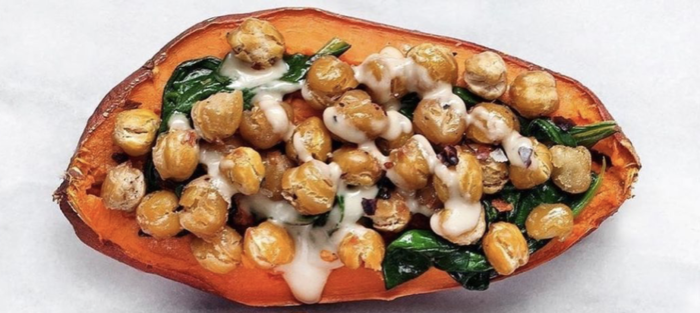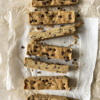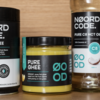Don't See Any Results With The Keto Diet? This Might Be The Problem

Are you struggling with weight loss and other results you hope to achieve with a keto diet? Unconscious carbohydrates may be the problem. Think of; eating and drinking that you think is good, but that actually doesn't fit in with the pursuit of ketosis.
What you kick out of ketosis.
Unfortunately carbohydrate-rich plant foods do not fit in a ketogenic diet. Eating it you can get out of ketosis. Yes, these foods have their advantages; think of: flavonoids, carotenoids, phytoestrogens, glucosinolates and other vitamins and minerals. However, if you are striving for ketosis (the state in which your body uses fat as the dominant fuel instead of glucose), you should limit the intake of carbohydrates to a maximum of 25 grams per day and skip some relatively healthy food. At least in moderation. [1]
Let's take a look at some frequent offenders that many people stumble upon during their ketogenic diet:
Starchy vegetables
Sweet potato, beet and pumpkin are nourishing powerhouses. But together with those nutrients and fibres comes a large amount of carbohydrates that you can store directly from ketosis. [1]
Legumes
Legumes are rich in carbohydrates (read: keto-unfriendly in even small quantities). Think of: alfalfa, beans, carob, chickpeas, lentils, peas, soybeans, tamarind and peanuts. [1]
Fruit
Most fruits have a high sugar content (i.e.: carbohydrates). Even a small amount of fruit can slow down weight loss on a keto diet. Go for berries or coconut - but in moderation. [1]
Even if you avoid these relatively healthy 'offenders', you may still get carbohydrates from other sources that sabotage your desired results.
Drinks
Sugar-sweetened teas, fruit juices and sports drinks quickly knock you out of ketosis - bad news for a keto diet. Artificially sweetened drinks are no better.
"Keto-Friendly" products
Snack bars, drinks, cookies, crackers and everything else that manufacturers pack as keto-friendly don't help with weight loss. Many come packed with artificial sweeteners, high amounts of sugar alcohols and synthetic additives.
Added sugars
You can question everything that is processed. Think:
- Marinade
- Packed nuts and seeds
- Flavoured yogurt
- Eating in restaurants (some restaurants add starch to dishes)
- Salad dressings
- Packaged meat and sausage
5 tips to avoid unconscious carbohydrates (and stay in ketosis).
All of the above eliminated? Then apply the following strategies to avoid unconscious carbohydrates and achieve your keto goals!
1. Eat real, whole foods where possible.
Real food (food from the country, not from the factory) such as broccoli or unsalted unroasted nuts do not contain added sugar or other keto "no-no" ingredients. Quality is important. Choose organic where possible; grass fed meat, wild caught fish, organic poultry and eggs.
2. Try cyclic keto.
Do you still need the starchy and sugary carbohydrates mentioned above? Then try keto-cycling. While some people do well in long-term nutritional ketosis, others experience a great advantage of the keto diet (and metabolic flexibility) when they go in and out of ketosis strategically by increasing their intake of healthy carbohydrates. This is done by eating ketogenic for five days, followed by two days rich in carbohydrates. [2]
3. Read the labels carefully.
If you are going to eat prepacked food anyway, read the labels carefully and look for them:
- The total amount of carbohydrates (not more than 25 grams per day)
- The total added sugars in the product
- Any ingredient that ends in -ose, which is a form of sugar
4. Check with restaurants.
Ask restaurants if the dish contains added sugars, gluten and dairy. Nowadays, restaurants offer gluten-free menus - but beware! Although they are sometimes safer than the regular menu, it's no guarantee that you'll eat a keto-friendly meal. A dish with gluten-free breadcrumbs will not keep you in ketosis. If in doubt, ask.
5. Experiment with exogenous ketones.
Exogenous ketones, a complementary form of ketones such as MCTs, help to maintain ketosis [3], even if carbohydrate-rich foods come into play. But that doesn't mean that you can drip MCT oil on your pizza untroubled and then expect to remain in ketosis...
Sources:
[1] https://www.ncbi.nlm.nih.gov/books/NBK499830/
[2] https://www.ncbi.nlm.nih.gov/pmc/articles/PMC6251269/
[3] https://nutritionandmetabolism.biomedcentral.com/articles/10.1186/s12986-016-0069-y




